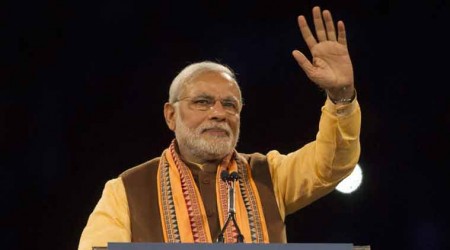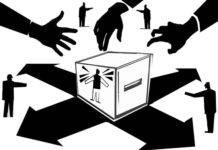The Parliament’s approval this week of the legislation to finalise the land boundary with Bangladesh is a historic moment in the political evolution of South Asia and sets the stage for comprehensive regional integration of the eastern Subcontinent.
Nearly seven decades after the Partition and independence of the Subcontinent, India has resolved its boundary problems with one of the two successor states, Bangladesh.
The resolution of issues relating to land boundary complements the decisions of Delhi and Dhaka to abide by the award of an international tribunal last year on the maritime boundary between the two countries in the Bay of Bengal.
With the territorials questions resolved, India and Bangladesh have an opportunity to turn their long land boundary of 4060 km and their vast maritime spaces into zones of expansive economic cooperation.
As colonial Britain rushed to the exits in 1947, the Radcliffe Commission drew the dividing lines across the Punjab and Bengal in three weeks flat. On the west, the Kashmir question complicated the settlement of the land boundary with Pakistan. In the east, India found it hard to approve the boundary deal after Indira Gandhi and Sheikh Mujibur Rehman came up with an understanding in 1974.
In 2010, Manmohan Singh and Sheikh Hasina decided to give a new push and arrived at a settlement in 2011. If an elusive political consensus delayed the Parliament’s ratification of the settlement in the last few years, all the parties have now come together to vote for the settlement.
The stage is now set for Prime Minister Narendra Modi to visit Bangladesh within the next few weeks and outline an ambitious new agenda for bilateral relations. The visit of Sheikh Hasina to India in 2010 moved the two countries towards greater cooperation on terrorism, India opening its markets for goods from Bangladesh, and the resolution of territorial issues.
Modi’s visit next month must focus on making the border regions a zone of peace, stability and economic cooperation. Addressing the question of cattle smuggling from India to Bangladesh is critical to ending continuing violence on the border. Modernising the current infrastructure for movement of goods across the border, improving connectivity, and facilitating legitimate cross-border movement of temporary workers should also be major priorities for Modi.
With more than 50 rivers crossing the borders of the two countries, Delhi and Dhaka must now move towards a more comprehensive approach to sharing the water resources rather than negotiate river by river. In the maritime domain, there are immense possibilities for full spectrum cooperation between the countries.
Looking beyond the bilateral, Modi and Prime Minister Sheikh Hasina must aim at a rapid expansion of regional cooperation in the eastern Subcontinent and across it. Bangladesh, Bhutan, Nepal and India have been exploring some productive ideas for trans-border economic cooperation and connectivity in the last few years.
China has been pressing for regional cooperation between its south western province of Yunnan, Myanmar, Bangladesh and India. With the major regional forum, the South Asian Association for Regional Cooperation (SAARC) slowed down by Pakistan’s reluctance to deepen economic ties with India, Delhi can and should press ahead at full steam in the eastern Subcontinent.
C Raja Mohan is a distinguished fellow at the Observer Research Foundation, Delhi and a Contributing Editor for The Indian Express.
Source: Ittefaq











মোদী সরকার চায় বাংলাদেশের জনগণের সঙ্গে সু-সম্পর্ক
আ.লীগ কংগ্রেসের অনেক দালালী করেও কিছু পায়নি : খালেদা
http://www.amardeshonline.com/pages/details/2015/05/10/283598#.VU57YZOE53o
http://www.sheershanewsbd.com/2015/05/09/79985
BNP needs to do more homework with the Modi government to establish this in reality. Kheleda Zia may need to make a visit to India soon to meet Narendra Modi to explain the following:
1. Since the city council election proved to the common people that fair election is not possible under AL and current EC, all democracy-loving people of Bangladesh is behind BNP in order to launch a one-point movement – “Establish True Democracy in Bangladesh”.
2. If a free and fair election like India is held today, BNP will emerge as the most popular party in Bangladesh to form government. BNP will work to enhance the people to people relationship between Bangladesh and India.
3. Ask Modi’s honest advice how true democracy can be establish in Bangladesh and what India can do to help as a true friend of Bangladesh. Kheleda may also ensure Modi that BNP will always promote good relation with India which is mutually benefiting and based on mutual respect.
If indeed India is interested to forge mutually beneficial and sustainable and not one-sided opportunistic economic relations with Bangladesh its leadership would do well to encourage Hasina government to commit itself to holding a free and fair election in the immediate future. After all, in the absence of a credibly elected democratic government which Hasina government is not whatever agreement this government reaches with India will not have the mandate of its people and thus may not last long or at the most, is likely to be viewed with suspicion.